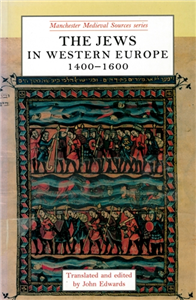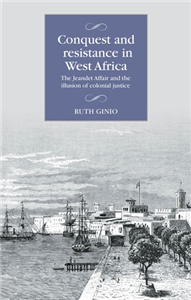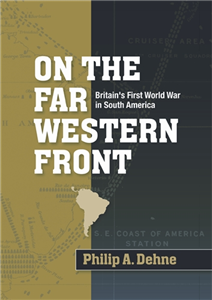Your Search Results
-
Promoted ContentLiterature & Literary StudiesAugust 2024
Instead of modernity
The Western canon and the incorporation of the Hispanic (c. 1850–75)
by Andrew Ginger
Instead of modernity goes to the very heart of comparative cultural study: the question of what happens when intimate, dynamic connections are made over place and time, what it is to feel at home amid the lavish diversity of culture. This ambitious interdisciplinary book reconsiders foundational figures of the modern western canon, from Darwin to Cameron, Baudelaire to Whistler. It weaves together brain images from France, preserved insects from the Americas, glass in London, poetry from Argentina, paintings from Spain. Flaubert, Whitman, and Nietzsche find themselves with Hostos from Puerto Rico and Gorriti from Argentina. The book ranges over theoretical fields: trauma and sexuality studies, theories of visuality, the philosophy of sacrifice and intimacy, the thought of Wittgenstein. Instead of modernity is an adventure in the practice of comparative writing: resonances join suggestively over place and time, the textures of words, phrases and images combine to form moods.
-
Promoted ContentLiterature & Literary StudiesMarch 2017
Asia in Western fiction
by Robin Winks
Any reader who has ever visited Asia knows that the great bulk of Western-language fiction about Asian cultures turns on stereotypes. This book, a collection of essays, explores the problem of entering Asian societies through Western fiction, since this is the major port of entry for most school children, university students and most adults. In the thirteenth century, serious attempts were made to understand Asian literature for its own sake. Hau Kioou Choaan, a typical Chinese novel, was quite different from the wild and magical pseudo-Oriental tales. European perceptions of the Muslim world are centuries old, originating in medieval Christendom's encounter with Islam in the age of the Crusades. There is explicit and sustained criticism of medieval mores and values in Scott's novels set in the Middle Ages, and this is to be true of much English-language historical fiction of the nineteenth and early twentieth centuries. Even mediocre novels take on momentary importance because of the pervasive power of India. The awesome, remote and inaccessible Himalayas inevitably became for Western writers an idealised setting for novels of magic, romance and high adventure, and for travellers' tales that read like fiction. Chinese fictions flourish in many guises. Most contemporary Hong Kong fiction reinforced corrupt mandarins, barbaric punishments and heathens. Of the novels about Japan published after 1945, two may serve to frame a discussion of Japanese behaviour as it could be observed (or imagined) by prisoners of war: Black Fountains and Three Bamboos.
-
 Trusted Partner
Humanities & Social SciencesNovember 2020
Trusted Partner
Humanities & Social SciencesNovember 2020Non-Western responses to terrorism
by Michael J. Boyle
This edited collection surveys how non-Western states have responded to the threats of domestic and international terrorism in ways consistent with and reflective of their broad historical, political, cultural and religious traditions. It presents a series of eighteen case studies of counterterrorism theory and practice in the non-Western world, including countries such as China, Japan, India, Pakistan, Egypt and Brazil. These case studies, written by country experts and drawing on original language sources, demonstrate the diversity of counter-terrorism theory and practice and illustrate how the world 'sees' and responds to terrorism is different from the way that the United States, the United Kingdom and many European governments do. This volume - the first ever comprehensive account of counter-terrorism in the non-Western world - will be of interest to students, scholars, students and policymakers responsible for developing counter-terrorism policy.
-
 Trusted Partner
Humanities & Social SciencesJune 2011
Trusted Partner
Humanities & Social SciencesJune 2011The Europeanisation of the Western Balkans
EU justice and home affairs in Croatia and Macedonia
by Florian Trauner, Emil Kirchner, Thomas Christiansen
This book deals with the scope and nature of the EU's external influence over South-Eastern Europe in the present enlargement. By elaborating on the Europeanisation of the Western Balkans in a systematic, theory-oriented and comparative way, the book provides rich insight into the dynamics of the current enlargement and offers a comprehensive analysis of the EU's avenues of external leverage in the field of justice and home affairs, a key sector of cooperation in the EU-Western Balkans relations. The book is an important contribution towards a better understanding of how the EU's use of pre-accession conditionality has changed since the Eastern enlargement. It will be of interest to decision-makers, officials and academics concerned with adaptation and transformation processes in South-Eastern Europe and the possibilities and limitations of the EU's influence in the outside world. ;
-
 Trusted Partner
Humanities & Social SciencesAugust 2023
Trusted Partner
Humanities & Social SciencesAugust 2023Picturing the Western Front
Photography, practices and experiences in First World War France
by Beatriz Pichel
Between 1914 and 1918, military, press and amateur photographers produced thousands of pictures. Either classified in military archives specially created with this purpose in 1915, collected in personal albums or circulated in illustrated magazines, photographs were supposed to tell the story of the war. Picturing the Western Front argues that photographic practices also shaped combatants and civilians' war experiences. Doing photography (taking pictures, posing for them, exhibiting, cataloguing and looking at them) allowed combatants and civilians to make sense of what they were living through. Photography mattered because it enabled combatants and civilians to record events, establish or reinforce bonds with one another, represent bodies, place people and events in imaginative geographies and making things visible, while making others, such as suicide, invisible. Photographic practices became, thus, frames of experience.
-
 Trusted Partner
Humanities & Social SciencesJuly 2005
Trusted Partner
Humanities & Social SciencesJuly 2005The extreme Right in Western Europe
Success or failure?
by Elisabeth Carter
Parties of the extreme Right have experienced a dramatic rise in electoral support in many countries in Western Europe over the last two and a half decades. This phenomenon has been far from uniform, however, and the considerable attention that the more successful Right-wing extremist parties have received has sometimes obscured the fact that these parties have not recorded high electoral results in all West European democracies. Furthermore, their electoral scores have also varied over time, with the same party recording low electoral scores in one election but securing high electoral scores in another. This book examines the reasons behind the variation in the electoral fortunes of the West European parties of the extreme Right in the period since the late 1970s. It proposes a number of different explanations as to why certain parties of the extreme Right have performed better than others at the polls and it investigates each of these different explanations systematically and in depth. ;
-
 Trusted Partner
Humanities & Social SciencesSeptember 2017
Trusted Partner
Humanities & Social SciencesSeptember 2017The future of western capitalism?
by Alberta Andreotti, David Benassi, Yuri Kazepov
-
 Trusted Partner
Humanities & Social SciencesFebruary 2013
Trusted Partner
Humanities & Social SciencesFebruary 2013The Jews in western Europe, 1400–1600
by Translated and Edited by John Edwards
As European politics, society, economy and religion underwent epoch-making changes between 1400 and 1600, the treatment of Europe's Jews by the non-Jewish majority was, then as in later periods, a symptom of social problems and tensions in the Continent as a whole. Through a broad-ranging collection of documents, John Edwards sets out to present a vivid picture of the Jewish presence in European life during this vital and turbulent period. Subjects covered include the Jews' own economic presence and culture, social relations between Jews and Christians, the policies and actions of Christian authorities in Church and State. He also draws upon original source material to convey ordinary people's prejudices about Jews, including myths about Jewish 'devilishness', money-grabbing, and 'ritual murder' of Christian children. Full introductory and explanatory material makes accessible the historical context of the subject and highlights the insights offered by the documents as well as the pitfalls to be avoided in this area of historical enquiry. This volume aims to provide a coherent working collection of texts for lecturers, teachers and students who wish to understand the experience of Jewish Europeans in this period. ;
-
 Trusted Partner
Humanities & Social SciencesJanuary 2013
Trusted Partner
Humanities & Social SciencesJanuary 2013The Jews in western Europe, 1400–1600
by John Edwards
As European politics, society, economy and religion underwent epoch-making changes between 1400 and 1600, the treatment of Europe's Jews by the non-Jewish majority was, then as in later periods, a symptom of social problems and tensions in the Continent as a whole. Through a broad-ranging collection of documents, John Edwards sets out to present a vivid picture of the Jewish presence in European life during this vital and turbulent period. Subjects covered include the Jews' own economic presence and culture, social relations between Jews and Christians, the policies and actions of Christian authorities in Church and State. He also draws upon original source material to convey ordinary people's prejudices about Jews, including myths about Jewish 'devilishness', money-grabbing, and 'ritual murder' of Christian children. Full introductory and explanatory material makes accessible the historical context of the subject and highlights the insights offered by the documents as well as the pitfalls to be avoided in this area of historical enquiry. This volume aims to provide a coherent working collection of texts for lecturers, teachers and students who wish to understand the experience of Jewish Europeans in this period.
-
 Trusted Partner
Science & MathematicsFebruary 2025
Trusted Partner
Science & MathematicsFebruary 2025Assemblages of cancer
Experiences and contexts of breast cancer in the UK, France and Italy
by Cinzia Greco
Assemblages of cancer illustrates the tensions in the experiences and context of breast cancer in Western Europe. Breast cancer is presented as a success story in oncology, especially in countries with advanced, universal healthcare systems. At the same time, individual experiences are shaped by uncertainty, local variability of healthcare provisions, and the need for patients to assemble information about the treatments, knowledge on healthcare systems navigation, and different processes of meaning-making to manage the uncertainty and variability characterising individual outcomes. The book explores both how individual bodies and experiences are transformed by different local medical practices, institutions and discourses of breast cancer and how patients need to find their own way in these contexts. Assemblages of cancer is based on ten years of ethnographic work with patients and medical professionals in the UK, France and Italy.
-
 Trusted Partner
Trusted Partner
-
 Trusted Partner
Trusted Partner
-
 Trusted Partner
Trusted Partner
-
 Trusted Partner
Humanities & Social SciencesMay 2021
Trusted Partner
Humanities & Social SciencesMay 2021Picturing the Western Front
by Beatriz Pichel, Ana Carden-Coyne
-
 Trusted Partner
Trusted Partner
-
 Trusted Partner
Humanities & Social SciencesJuly 2025
Trusted Partner
Humanities & Social SciencesJuly 2025Conquest and resistance in West Africa
The Jeandet Affair and the illusion of colonial justice
by Ruth Ginio
This book is an enthralling account of a legal scandal, which erupted in colonial Senegal in 1890 and reached the French metropolitan press and the parliament. The murder of a colonial administrator, Abel Jeandet, by one of his soldiers led to the brutal and illegal executions without trial of the killer and two local dignitaries. The volume follows the fascinating story of Ndiereby Ba, the widow of one of the dignitaries, who with the help of powerful métis men in the capital Saint Louis sued the French administrators who had supervised the executions for the murder of her husband. Through this captivating tale the book articulates the French expansion into West Africa, the resistance to colonial rule both violent and non-violent, and the lack of interest on the part of French politicians in the brutal conquest of a territory they know nothing about.
-
 Trusted Partner
Humanities & Social SciencesApril 2010
Trusted Partner
Humanities & Social SciencesApril 2010On the far Western front
Britain's First World War in South America
by Phillip A. Dehne
This book uncovers a forgotten campaign of the First World War, the fight to dominate South America. Propelled by the fear of British businessmen, Britain created a complex economic war against local Germans, with the aim of permanently overturning German dominance in lucrative avenues of international trade. By utilizing archives in Britain and South America, Dehne produces a lively account of the way the campaign was conducted on both sides of the Atlantic. This book will persuade anyone interested in the First World War that the conflict must be examined beyond the battlefields of Europe. It comprises a significant contribution to the new field of the history of globalization, and it will appeal to anyone interested in the economic, diplomatic, and imperial history of the twentieth century. Suggesting new reasons for the emergence of anti-foreign populism in South American states, it will also be of interest to Latin American history students. ;
-
 Trusted Partner
Humanities & Social SciencesDecember 2018
Trusted Partner
Humanities & Social SciencesDecember 2018Non-Western responses to terrorism
by Michael J. Boyle, John Horgan
-
 Trusted Partner
Humanities & Social SciencesMay 2016
Trusted Partner
Humanities & Social SciencesMay 2016The same-sex unions revolution in Western democracies
by Kelly Kollman
-
 Trusted Partner
MedicineJuly 2022
Trusted Partner
MedicineJuly 2022Histories of HIV/AIDS in Western Europe
by Janet Weston, Hannah J. Elizabeth, David Cantor
























